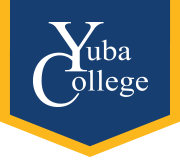Below is a list of all the Geoscience related courses:
Geography COURSES
GEOG-1 3 UNITS
Physical Geography
TRANSFERABLE TO CSU AND UC
C-ID: GEOG 110
54 LECTURE HOURS
A spatial study of Earth’s dynamic physical systems and processes.
Topics include maps, earth-sun relations, weather, climate, water,
landforms, soils, and the biosphere. Emphasis is on interrelationships
among systems and processes and their resulting patterns and
distributions. (L)
GEOG-1L (1 unit)
Physical Geography Lab
GEOG-5 (3 UNITS)
World Regional Geography
TRANSFERABLE TO CSU AND UC
54 LECTURE HOURS
Survey of the world’s culture regions and nations as interpreted by
geographers, including physical, cultural, and economic features.
Emphasis on spatial and historical influences on population growth,
transportation networks, and natural environments. Identification and
importance of the significant features of regions.
GEOG-6
Introduction to Weather and Climate
Introduction to the Earth’s atmosphere: topics include atmospheric structure and composition, solar radiation and energy balances, temperature, seasonal changes, atmospheric moisture, clouds and fog, precipitation, air pressure, winds, air masses and fronts, cyclones, weather forecasting, climate and climate change.
GEOG-10
Introduction to Geographic Information Systems
Study of Geographic Information Systems (GIS) science and its applications to spatial data management. Identification and acquisition of GIS data. This course provides an introduction the concepts, methods, and applications of Geographic Information Systems (GIS). It emphasizes the techniques used to capture, store, query, analyze and display spatial data. Specific topics include applications of GIS, geographic information and scale, coordinate systems, geospatial data models, data classification and symbolization, query and selection, cartographic design, data quality, geoprocessing, relational databases, metadata, spatial analysis and GIS software.
GEOG-11
Spatial Analysis and Modeling in GIS
This course provides the conceptual and practical foundations for using Geographic Information Systems (GIS) software. It emphasizes basic GIS software functionality including map display, attribute and spatial query, address geocoding, spatial database management, spatial analysis, cartographic presentation, and spatial data management. Also, it provides a survey of the various concepts, approaches, and tools involved in the analysis and modeling of spatial data using Geographic Information Systems (GIS). It emphasizes the use of spatial and statistical analysis, geoprocessing, and spatial modeling to investigate spatial distributions and relationships, answer spatial questions, and solve spatial problems. Specific topics include attribute and spatial query, geoprocessing, model building, distance and density surfaces, cluster analysis, network analysis, map algebra, surface interpolation and resampling, hydrologic analysis, 3D display/animation, and regression analysis.
GEOG-12
Cartographic Design for GIS
This course provides an introduction to map design and production in the context of Geographic Information Systems (GIS). It emphasizes the concepts and methods associated with designing and producing thematic maps. Specific topics include data standardization and classification, symbolization, map projections, map elements, typography, cartographic design, thematic mapping techniques (choropleth, proportional symbol, dot, isarithmic, and multivariate), color in cartography, history of cartography, and map reproduction. Map critique sessions are also held.
GEOG13
Introduction to Web GIS Applications
This course introduces the development of Web-based Geographic Information Systems (GIS) solutions. Map authoring and Web service management tools are used to teach the techniques of creating, managing, maintaining, and deploying Web map services. It also introduces several options for using published Web map services for Web-based and mobile mapping applications
GEOG40 Regional Field Studies – Mountains
GEOG42 Regional Field Studies – Volcanoes
GEOG43 Regional Field Studies – California Coasts
Geology COURSES
GEOL-8 3 UNITS
Earth Science
TRANSFERABLE TO CSU AND UC
C-ID: GEOL 120
54 LECTURE HOURS
Survey course with topics chosen principally from oceanography,
geology, physical geography, meteorology, and astronomy. Topics are
presented within a theme of understanding the earth. (L)
GEOL-8L 1 UNIT
Earth Science Laboratory
TRANSFERABLE TO CSU AND UC
54 LAB HOURS
Laboratory activities in Earth Science to reinforce and complement the
materials presented in GEOL 8.
Co-requisite: GEOL-8
Limitations on Enrollment: Course not open for credit to students
with credit in PHYSC 10AL
GEOL-10L 4 UNITS
Physical Geology
TRANSFERABLE TO CSU AND UC
C-ID: GEOL 101
54 LECTURE HOURS
54 LAB HOURS
Physical geology introduces the processes that are at work changing
the Earth today. Covers rocks and minerals, volcanoes, earthquakes
and plate tectonics. It also examines how water and wind shape the
Earth’s surface. (L,C)
Limitations on Enrollment: Course not open for credit to students
with credit in GEOL-10
GEOL-11L 4 UNITS
Historical Geology
TRANSFERABLE TO CSU AND UC
C-ID: GEOL 111
54 LECTURE HOURS
54 LAB HOURS
Historical Geology is the study of the evolution of life and landforms
through geologic time through the examination of the rock record.
in this course one will learn how the study of fossils, rocks, tectonic
processes, and geologic structures can provide us with information
regarding Earth’s geologic and biologic history. (L)
GEOL-12 3 UNITS
Oceanography
TRANSFERABLE TO CSU AND UC
54 LECTURE HOURS
General introduction to the basic principles of oceanography, including
the study of geological, physical, and chemical oceanography.
Topics will include the origin of Earth and the oceans, plate tectonics,
marine provinces, sediment, seawater composition and geochemical
distributions, surficial and deep-water oceanic circulation, waves,
tides, coastal erosion and deposition, marine ecosystems and human’s
effects on the oceans. (L)
GEOL-20 3 UNITS
Geology of California
TRANSFERABLE TO CSU AND UC
C-ID: GEOL 200
54 LECTURE HOURS
General introduction to the geological sciences with emphasis on
the geology of California. Topics covered will include the tectonic
provinces, landforms, natural resources, geologic history, natural
hazards, and related geologic environmental problems in the state. (L)
